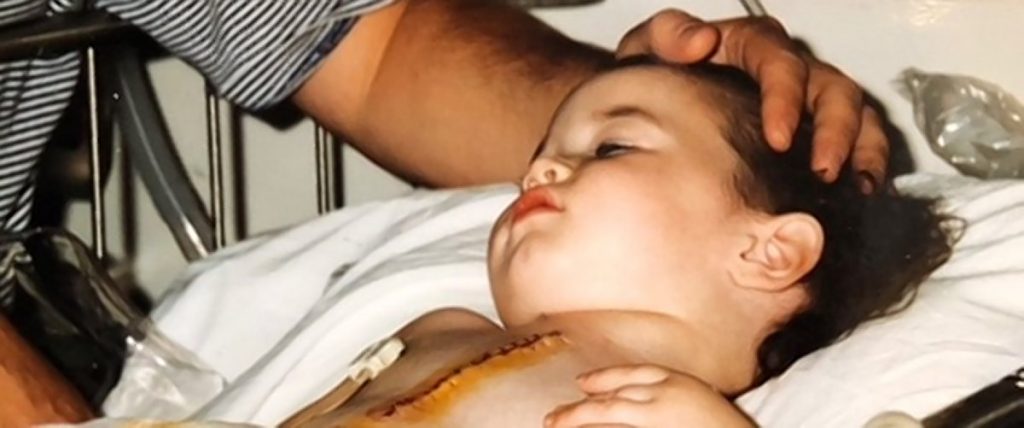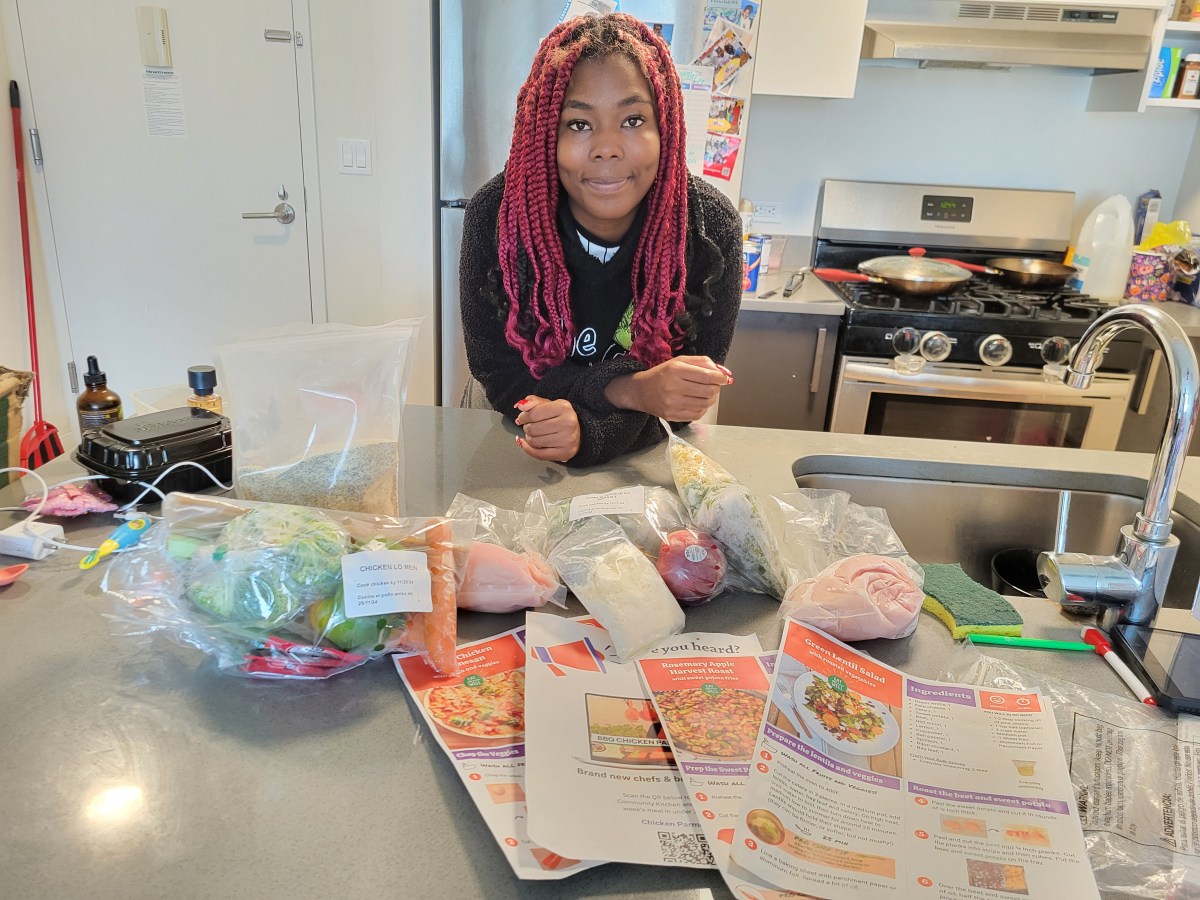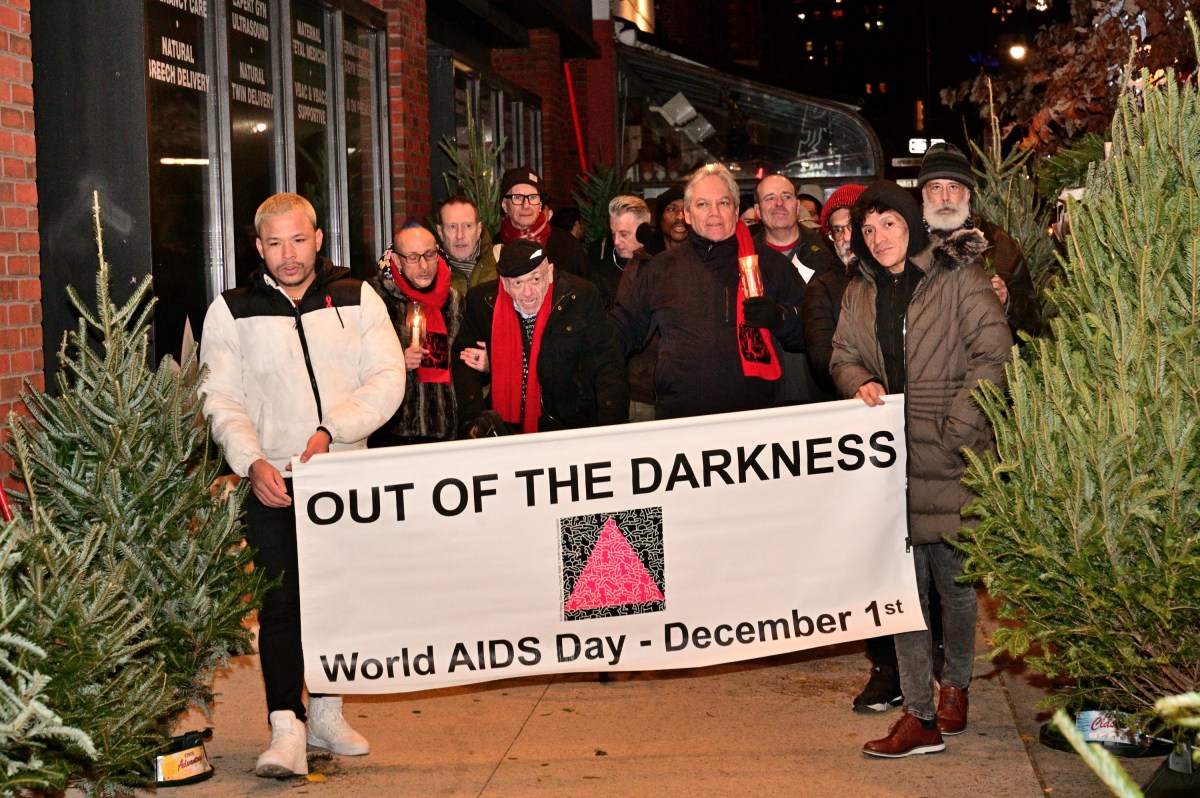At 2 years old, New Yorker Tabitha Ellis was required to wear a face mask over her nose and mouth for 15 to 20 minutes — three times a day — in order for medicine and water vapor to flow through her compromised body.
The treatment often required her to plug medical equipment into an outlet wherever her family was when it was time to put the mask back on, according to her dad, who said he had little choice but to force his daughter to stick with the schedule.
“It’s amazing the strength of a kid who doesn’t want that,” said Todd Ellis.
Eight in 1,000 babies are born with a heart defect. Some of those conditions heal on their own, or aren’t problematic. Ellis was not among those lucky kids whose issues resolve naturally. A hole between her two main heart chambers never closed, causing myriad health problems — and logistical issues.

Her family lived on a military base and moved every 10 months to three years. They couldn’t find a childcare center that would take their daughter and her breathing machine, so her mother quit working to care for the girl full time.
Cardiologists monitored her frequently, as she struggled to grow. At around age 2, doctors noticed a problem in a V-shaped part of the aorta known as the aortic arch. There was an aneurysm, a weakening in her artery that caused it to bulge, likely due to her heart working harder than usual.
Doctors in Texas eventually performed a surgery that patched the hole, and they also replaced a heart valve leading to her lungs that had been leaking.
Ellis came out of that operation a new person. The quiet girl, who once had little energy, couldn’t stop talking. She was active and playful.
But as great as she felt, her life after the surgery presented new challenges. Doctors said she was still fragile, she tired more easily than other kids, and she had to be careful not to get hit in the chest.
“I wasn’t allowed to play outside,” she recalled.
Still, freed from the shackles of their daughter’s breathing machine, the Ellis family began living a more normal life, including hiking and camping. Sometimes, though, their girl tired and her dad had to carry her on his shoulders.
Doctors finally loosened the reins in high school, clearing Ellis for normal activities unless she experienced problems. And that clearance was all it took for her to make drastic changes in her life.
She swam competitively for four years, and ran track for two years, before realizing her decreased stamina held her back. Still, all was well — until her senior year.
While watching a movie in psychology class, Ellis noticed tingling in her arm. She suddenly felt she couldn’t move, like a boulder weighed her down, and she couldn’t talk. The sensation was only a few minutes, she recalled. When Ellis sought treatment at the hospital, all indications were that she probably had a mini-stroke. But tests showed no evidence of one.

A decade later, Ellis — now 27 and an actress in New York City — is grateful she hasn’t had a recurrence, according to her dad.
“I’m not sure she would have done half the things she’s done if not for her heart problem. It made her fearless,” Todd Ellis said.
Ellis’s heart condition taught her every day is a gift, and everybody has their own problems. She’s volunteered for American Heart Association since age 10.
“A lot of people are affected by cardiac issues like mine,” Ellis said. “It’s nice to meet others who have similar stories.”
— American Heart Association




































